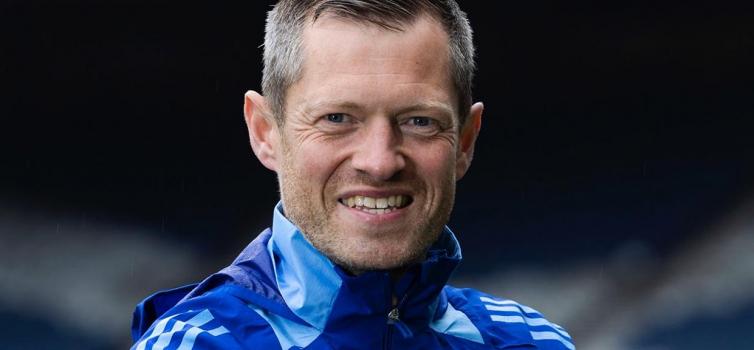Scotland Performance Director Jones named Sporting Director at Hearts

Graeme Jones: Has worked for the SFA since 2015
Written by Training Ground Guru — September 5, 2024
Performance Director Graeme Jones is leaving the Scottish Football Association after nine years to become Sporting Director at Hearts.
Jones will “oversee all aspects of the football department” at Hearts, leading on performance, recruitment, the Academy and support of both men’s and women’s senior sides. His exit date from the SFA has not yet been finalised, although it is likely to be after Scotland’s Nations League games in November.
Hearts Chief Executive Officer Andrew McKinlay said: “I’m extremely pleased that Graeme has agreed to join us as our new Sporting Director. The role is a pivotal one within the football club and, as such, it was crucial that our recruitment process was thorough, not rushed, and focused on finding the right individual.
“In Graeme, I believe we have that individual. He has huge experience in the game across many different functions, and his reputation within the Scottish FA is peerless.
“We’re getting a top operator, someone with the determination and the ability to drive standards as high as they can possibly be and I’m certain the club will reap the benefits of having Graeme as its Sporting Director.”
Jones started his career in 2005 as a Sports Scientist with Raith Rovers. He then took on dual roles of Sports Scientist at the Hampden Sports Health & Injury Clinic and Fitness Coach for UEFA.
In 2015, Jones was appointed as the SFA’s Head of Football Science and Medicine and two years later became their Head of High Performance. Last November, he was promoted to Performance Director and during his tenure has helped the Women’s team qualify for the 2019 World Cup and the Men for both the Euro 2020 and 2024 finals.
In November 2020, Jones spoke to TGG about the progress that had been made during his time with the SFA.
“When I came in as Head of High Performance, the structure was a little bit old fashioned,” he said. “That’s not a criticism of the individuals who were in place, it’s more an acknowledgement of a lack of focus and resources there had been in that area.
“There was an acceptance from within the Association that things needed to change. When you have elite athletes coming in from top clubs it can be a massive risk if you don’t have the right performance environment in place.
“I remember sitting down in my office at Oriam on my first day and writing three key things that needed to change on a whiteboard on the wall. Number one was communication. Two was relationships. Three was staff and services.
"Over the next six months there was a huge, huge amount of change and investment in those areas. Sports science was ramped up. GPS was invested in. Match analysis was invested in. Then sports medicine, with recovery therapies and support, and different things we introduced to enhance the experience on camp.
“We brought in a different type of sports medicine doctor and different physios. We almost tried to de-medicalise it when we were on camp, so it was less about treatment and more about management.
“It’s really taken the full three years to get to a point where I am comfortable with what we do.”




-1.png)





